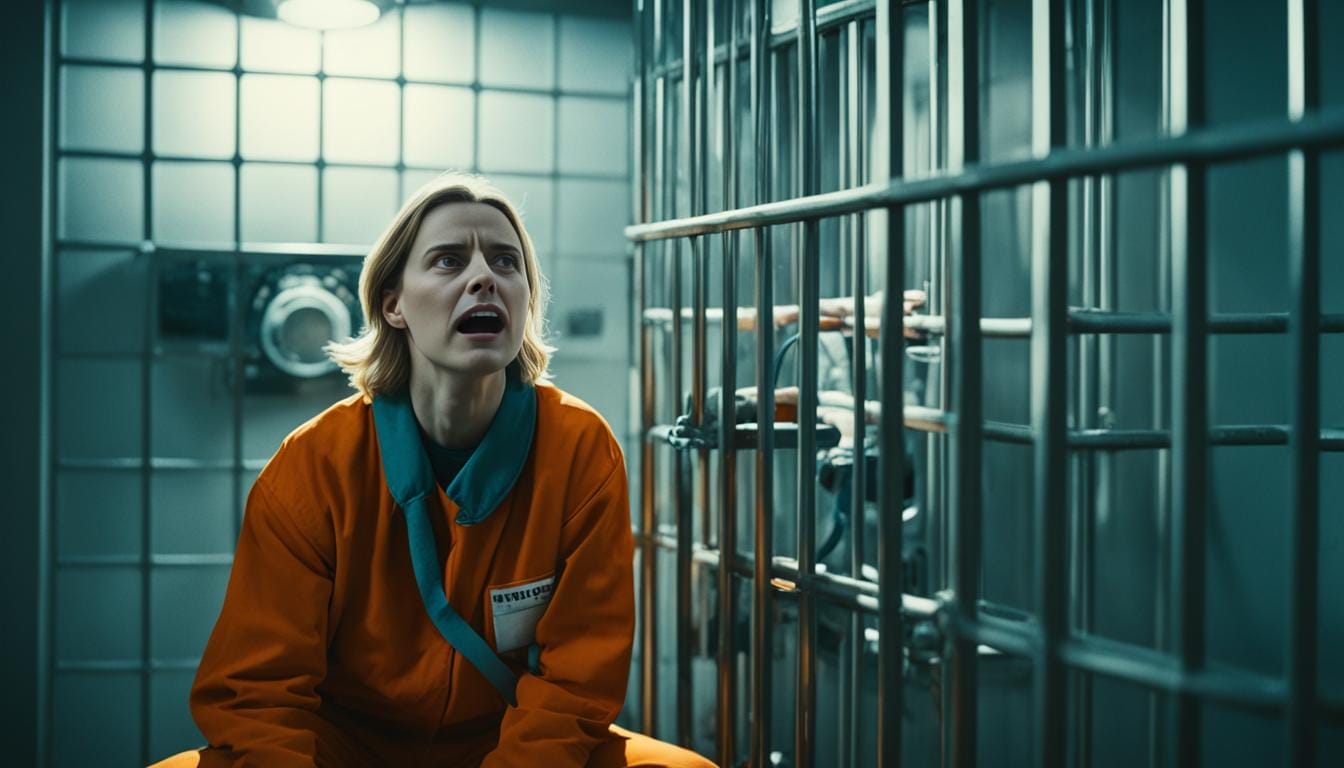Welcome to our comprehensive guide on jail time for second driving while intoxicated (DWI) offenses in Texas. If you’re facing a second DWI conviction, it’s crucial to understand the legal implications and consequences you may encounter. Throughout this guide, we will provide you with detailed information on the mandatory jail time, factors that influence jail time, legal requirements and procedures, and the potential consequences beyond jail. By equipping yourself with this knowledge, you can make informed decisions and take proactive steps to minimize the impact of a second DWI conviction in Texas.
Let’s dive into the specifics of jail time for second DWI offenses in Texas and explore the factors that can affect the duration of your sentence.
Mandatory Jail Time for 2nd DWI Convictions
In Texas, individuals convicted of a second driving while intoxicated (DWI) offense face mandatory jail time. This section provides detailed information on the minimum and maximum jail sentences that can be imposed for a second DWI, as well as explains how mandatory jail time is applicable regardless of probation.
Minimum and Maximum Jail Sentences
When it comes to second DWI offenses in Texas, there are specific minimum and maximum jail sentences that can be imposed. The minimum jail sentence for a second DWI conviction is 30 days, while the maximum sentence can go up to one year. These sentences can vary depending on the circumstances of the case, such as the presence of aggravating factors, prior DWI convictions, and any resulting injuries or fatalities.
To ensure a comprehensive understanding of the potential jail time, it is essential to consult with a knowledgeable criminal defense attorney who can provide specific guidance based on the details of your case.
To further illustrate the minimum and maximum jail sentences, the table below outlines the possible jail time for a second DWI offense in Texas:
Mandatory Jail Time Regardless of Probation
It is crucial to note that mandatory jail time is applicable for second DWI convictions in Texas, regardless of probation. This means that even if probation is granted, individuals convicted of a second DWI offense will still be required to serve a minimum jail sentence of 30 days.
The imposition of mandatory jail time aims to emphasize the seriousness of second DWI offenses and to deter individuals from committing repeat offenses. It is essential to understand the legal consequences and take appropriate measures to protect your rights and future.
Factors That Influence Jail Time
This section discusses the various factors that can influence the amount of jail time imposed for a second driving while intoxicated (DWI) conviction in Texas. Understanding these factors is crucial in assessing the potential consequences you may face if convicted. It is important to consult with a qualified attorney who can guide you through the legal process and help you build a strong defense.
Prior DWI Convictions and Their Impact
Prior DWI convictions play a significant role in determining the length of jail time for a second DWI offense in Texas. The state follows a “lookback period” of five years, meaning that prior DWI convictions within the past five years can be used to enhance the penalties for subsequent offenses. For example, a person with one prior DWI within the lookback period may face increased jail time compared to a first-time offender.
Aggravating Factors That Can Extend Jail Time
Aside from prior convictions, certain aggravating factors can also contribute to an increase in jail time for a second DWI conviction. These factors include:
- Excessive blood alcohol concentration (BAC) at the time of arrest
- Child endangerment while driving under the influence
- Causing bodily injury or death as a result of a DWI
- Driving on a suspended license
These aggravating factors can significantly impact the severity of the charges and potential jail time. It is essential to consult with a knowledgeable attorney who can analyze the specific circumstances of your case and advise you on the best course of action.
Legal Requirements and Procedures
This section focuses on the legal requirements and procedures associated with second DWI offenses in Texas. It explains the classification of a second DWI offense as a Class A Misdemeanor and provides information on the probation conditions that may include jail time.
Class A Misdemeanor Classification
A second DWI offense in Texas is classified as a Class A Misdemeanor. This classification carries significant legal consequences and penalties. A Class A Misdemeanor is a serious offense that can result in substantial fines and potential jail time. It is essential to understand the severity of this classification and the impact it can have on your future.
Probation Conditions Including Jail Time
When facing a second DWI offense in Texas, probation is often a part of the legal process. Probation allows individuals to avoid jail time by adhering to certain conditions and requirements set by the court. However, it’s important to note that probation conditions may include jail time, depending on the circumstances of the offense and the individual’s criminal history. It is crucial to fully understand the probationary terms and comply with them to avoid further legal consequences.
Consequences Beyond Jail
This section explores the consequences that individuals may face beyond jail time for a second DWI conviction in Texas. It discusses the potential suspension and revocation of driving licenses, the financial penalties and surcharges imposed, and the mandatory installation of ignition interlock devices.
License Suspension and Revocation
One of the significant consequences of a second DWI conviction in Texas is the potential suspension or revocation of your driving license. The Department of Public Safety has the authority to take such actions, which can severely impact your ability to drive legally and independently. It is crucial to understand the specific requirements and procedures for license reinstatement once the suspension or revocation period ends.
Financial Penalties and Surcharges
In addition to jail time, individuals convicted of a second DWI offense in Texas may face substantial financial penalties and surcharges. These monetary consequences can include fines, court costs, and surcharges imposed by the Texas Department of Public Safety. It is essential to be aware of the potential financial burden associated with a second DWI conviction and plan accordingly.
Mandatory Installation of Ignition Interlock Devices
Another consequence of a second DWI conviction in Texas is the mandatory installation of an ignition interlock device (IID) on your vehicle. An IID is a mechanism installed in a car that requires the driver to pass a breathalyzer test before the vehicle can be started. These devices aim to prevent individuals from operating a vehicle while under the influence of alcohol. It is important to comply with the requirements for IID installation and maintenance, as failure to do so can result in further penalties and legal consequences.
Understanding Probation for 2nd DWI Offenders
This section provides an in-depth understanding of probation for individuals convicted of a second DWI offense in Texas. It outlines the duration and conditions of probation, including any requirements for community service and participation in alcohol education and rehabilitation programs.
Duration and Conditions of Probation
Probation is a period of supervision imposed as an alternative to incarceration for individuals convicted of a second DWI offense in Texas. The duration of probation can vary depending on the specific circumstances of the case and the judge’s discretion. It typically lasts between two to five years.
During probation, individuals are required to adhere to certain conditions and restrictions. These conditions may include regular check-ins with a probation officer, compliance with all laws, and maintaining steady employment or enrollment in educational programs. Violation of any probation condition can result in severe consequences, including revocation of probation and the imposition of jail time.
Community Service Requirements
As part of their probation, second DWI offenders in Texas may be required to perform community service as a means of giving back to their community and making amends for their actions. Community service helps individuals develop a sense of responsibility and engage in productive activities that benefit society.
The number of community service hours required can vary depending on the severity of the offense and the judge’s discretion. Offenders may be assigned to complete their community service with specific organizations or agencies, such as non-profit organizations, local government entities, or charitable institutions.
Alcohol Education and Rehabilitation Programs
In addition to probation and community service, individuals convicted of a second DWI offense in Texas are often required to participate in alcohol education and rehabilitation programs. These programs aim to address alcohol abuse, addiction, and provide education about the harmful effects of impaired driving.
The specific programs and services required can vary depending on the individual’s needs and the judge’s orders. They may include alcohol assessment, counseling, group therapy, attending support groups such as Alcoholics Anonymous, and completing a state-approved alcohol education course.
Conclusion
Throughout this guide, we have discussed the key points surrounding the jail time for second driving while intoxicated (DWI) offenses in Texas. By now, you should have a clear understanding of the mandatory jail time, the factors that can influence the duration of imprisonment, the legal requirements, and the potential consequences beyond jail. It is crucial to grasp the implications of a second DWI conviction and take appropriate steps to protect yourself.
One of the most important things you can do if you are facing a second DWI charge is to seek legal representation. An experienced attorney can help navigate the complex legal system and ensure your rights are protected. They will analyze the specific details of your case, gather evidence, and build a strong defense strategy tailored to your situation.
Furthermore, it is essential to take proactive measures to minimize the potential consequences you may face. This can include attending alcohol education and rehabilitation programs, complying with probation conditions, and adhering to any community service requirements. By demonstrating your commitment to change, you can present a more favorable impression to the court and potentially mitigate the severity of the penalties you may receive.
In conclusion, a second DWI conviction in Texas can have significant ramifications, including mandatory jail time. By understanding the intricacies of the legal process, seeking professional guidance, and taking proactive steps, you can better protect your rights and mitigate the potential consequences you may face. Remember, it is crucial to prioritize your well-being and make informed decisions throughout this challenging process.











